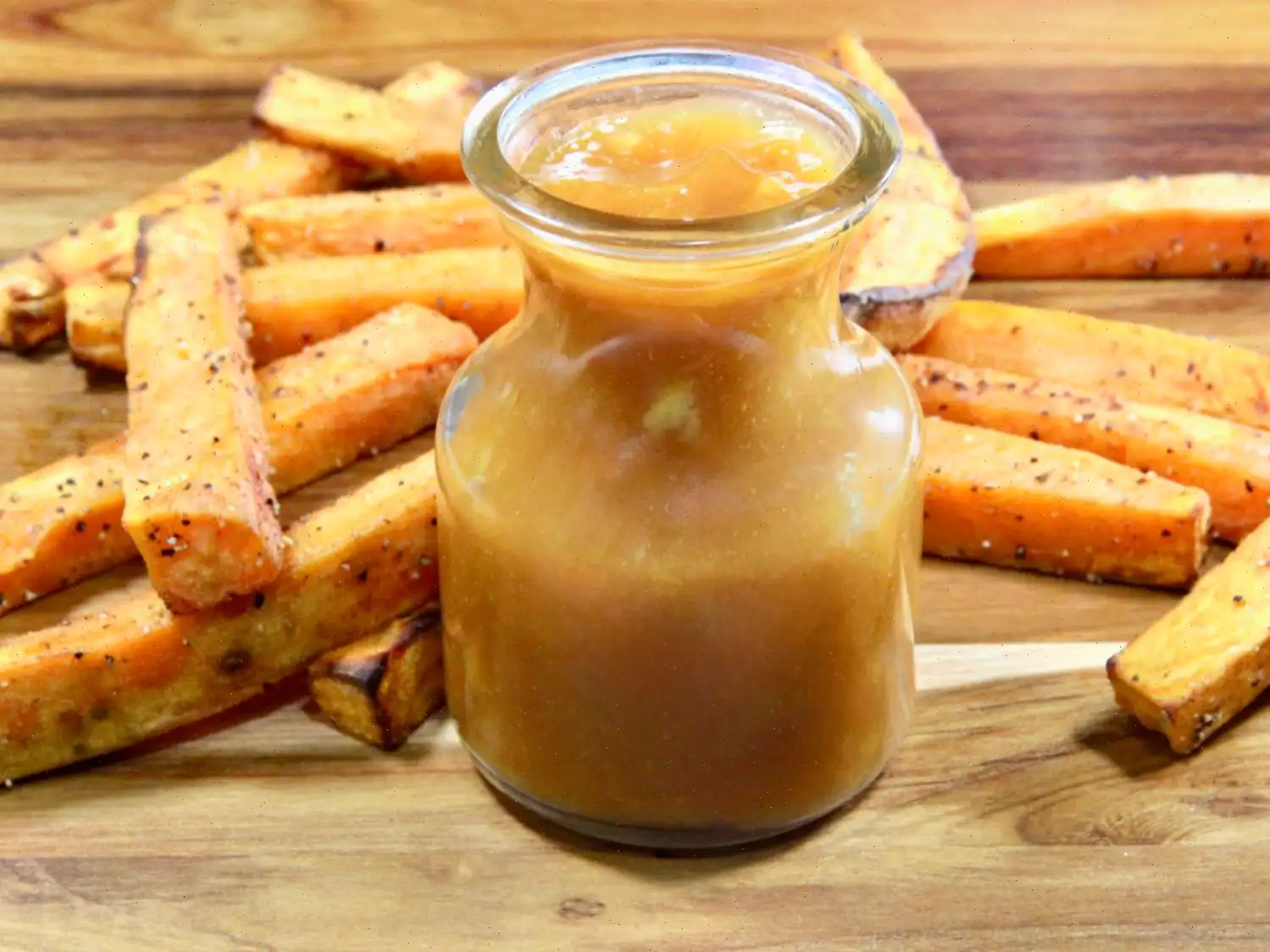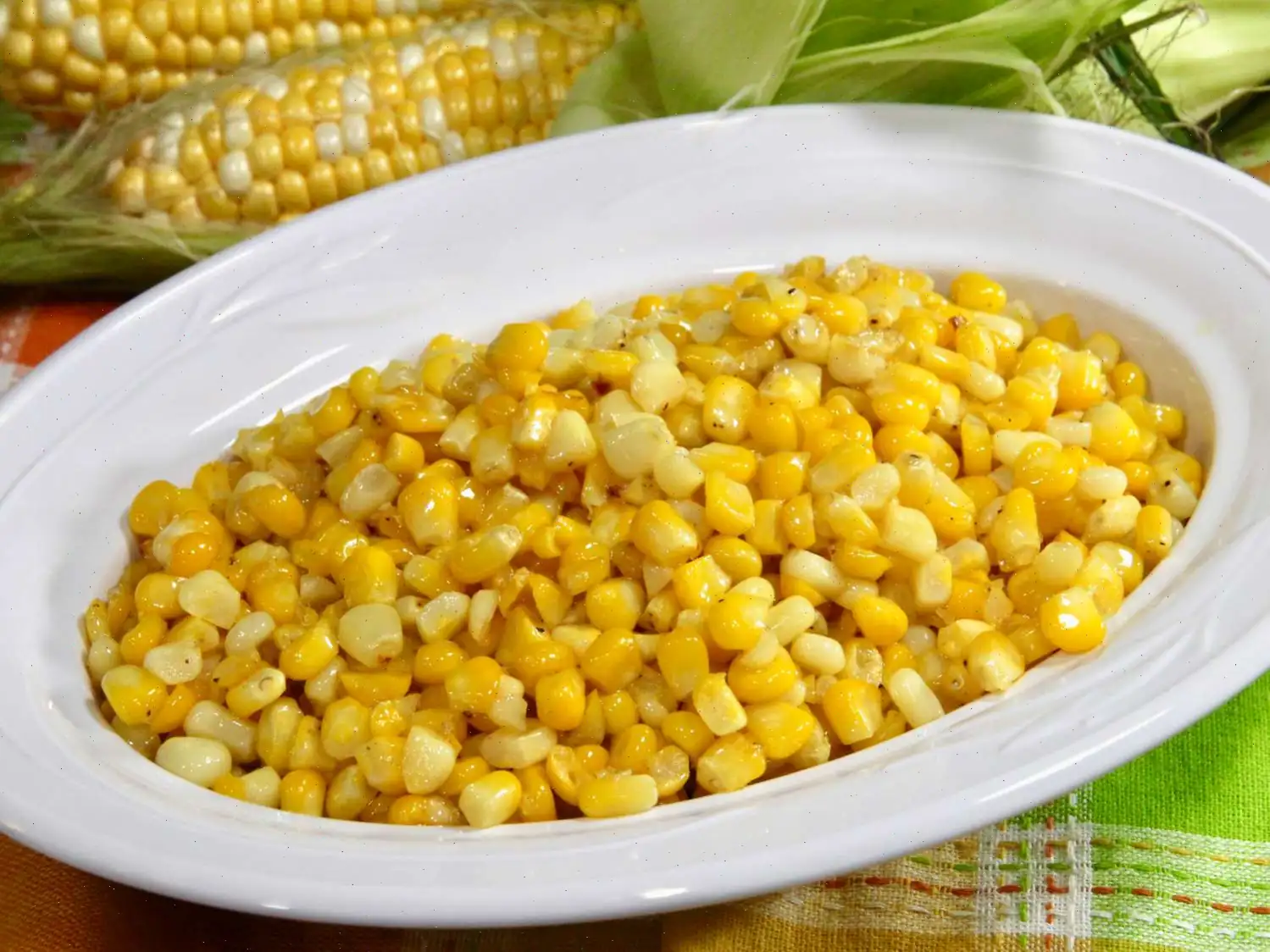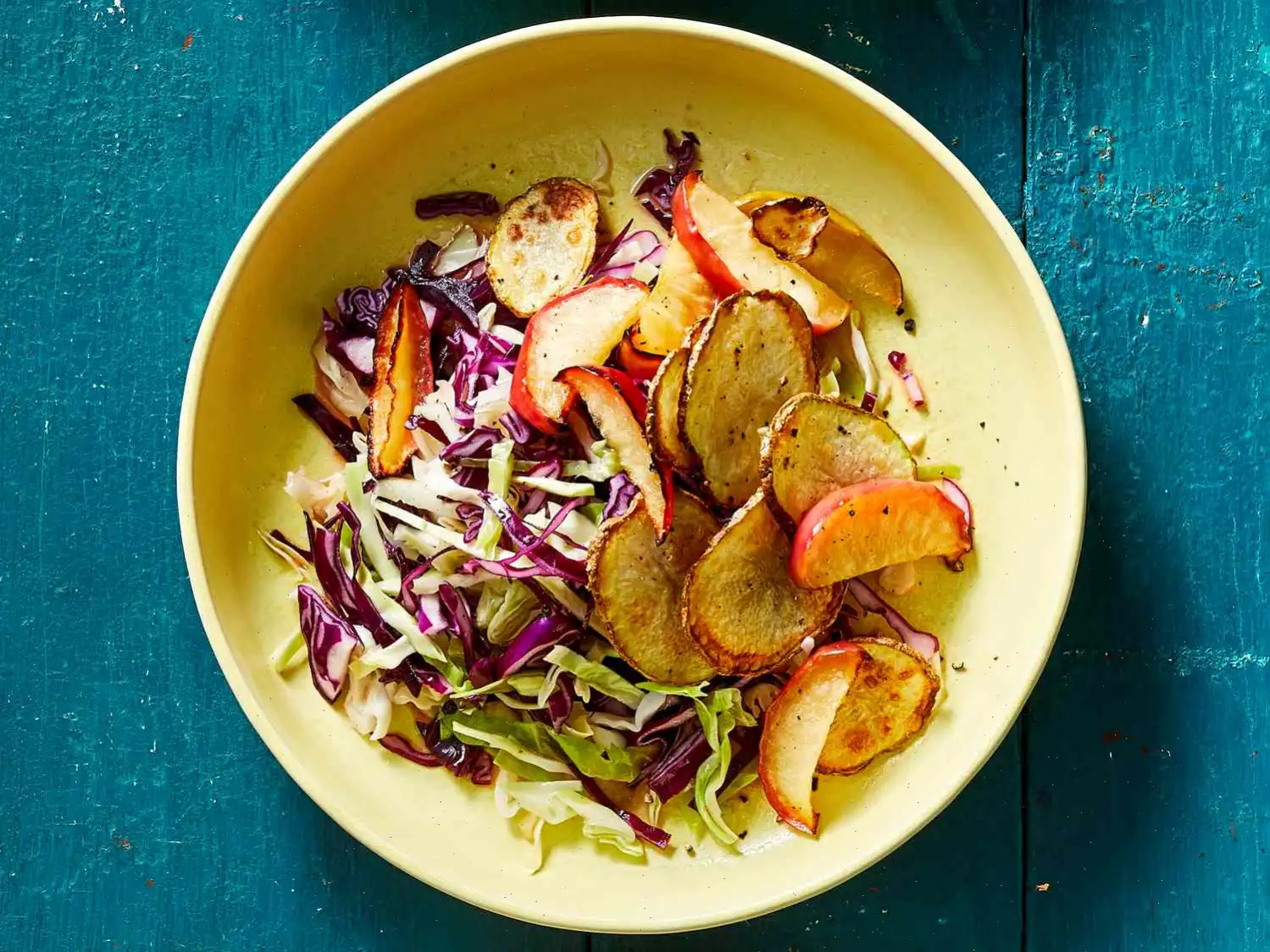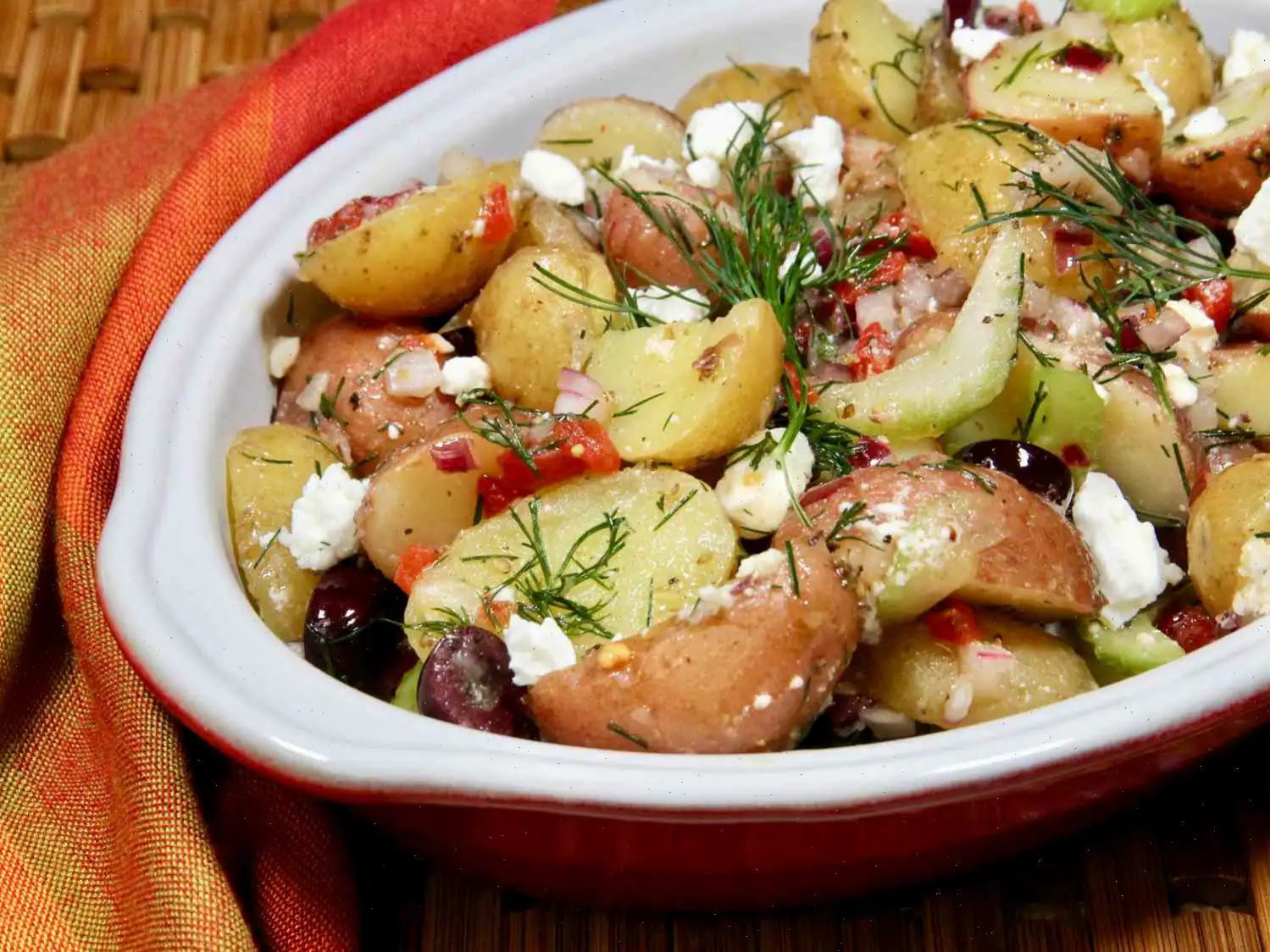
Receta de Kétchup de Mango
En esta receta, te mostramos cómo hacer un delicioso ketchup casero de mango. Este condimento dulce y ácido es perfecto para darle un toque tropical a tus platos favoritos. Con solo unos pocos ingredientes simples, puedes preparar un lote de este sabroso ketchup para disfrutar con papas fritas, hamburguesas o carnes a la parrilla. ¡Vamos a empezar!
Esta salsa de mango es perfecta para acompaar una gran variedad de platillos. Su sabor dulce y picante combina a la perfeccin, dando un toque extico a tus comidas. A continuacin, te mostramos cmo prepararla fcilmente.
Ingredientes
- 1 1/2 tazas de trozos frescos de mango
- 1/4 de taza de salsa de tomate (ketchup)
- 1 cucharada de salsa de soja baja en sodio
- 1 cucharada de vinagre de manzana
- 1 cucharadita de pasta de jengibre
- 1 cucharadita de azcar moreno compactado
- 1/2 cucharadita de salsa de chile (ajusta segn tu gusto)
- Sal al gusto
Instrucciones
- Comienza colocando los trozos de mango, el ketchup, la salsa de soja, el vinagre de manzana, la pasta de jengibre, el azcar moreno, la salsa de chile y una pizca de sal en una cacerola mediana.
- Enciende el fuego a temperatura baja-media y cocina los ingredientes, revolviendo cada pocos minutos. Deja que se cocinen durante unos 5 a 7 minutos, o hasta que el mango se ablande y la salsa tenga una consistencia ms espesa.
- Una vez que la salsa haya alcanzado la textura deseada, retrala del fuego. Usa una batidora de inmersin para triturar la mezcla hasta obtener una consistencia suave. Si no tienes batidora de inmersin, puedes usar una licuadora o procesador de alimentos.
- Cuando la mezcla est completamente triturada y sin grumos, vierte la salsa en un recipiente hermtico. Djala enfriar completamente y gurdala en el refrigerador hasta que est bien fra, lista para servir.
Informacin Nutricional (por porcin)
- Porciones: 12
- Caloras: 25
- Grasas Totales: 0g (0% VD)
- Grasas Saturadas: 0g
- Colesterol: 0mg
- Sodio: 138mg (6% VD)
- Carbohidratos Totales: 6g (2% VD)
- Fibra Diettica: 0g
- Azcares: 5g
- Protenas: 0g (1% VD)
- Vitamina C: 10mg (11% VD)
- Calcio: 5mg
- Hierro: 0mg
- Potasio: 69mg (1% VD)
Este delicioso acompaante es bajo en caloras y es perfecto para cualquier ocasin. Disfruta de su sabor nico y refrescante en tus platillos favoritos!
El ketchup de mango es una variante sabrosa del tradicional condimento a base de tomate, combinando la dulzura tropical de los mangos maduros con elementos salados y cidos. Su origen se remonta al Caribe y el sudeste asitico, donde la abundancia de mangos inspir a los cocineros a experimentar con salsas ms all de las tradicionales conservas dulces. La fusin de frutas con vinagre, especias y, en ocasiones, salsa de soja refleja siglos de intercambio culinario entre los poderes coloniales europeos y los ingredientes locales, dando lugar a un condimento que es tanto extico como familiar.
Variaciones Regionales y Caractersticas nicas
Diferentes regiones han adaptado el ketchup de mango segn los gustos locales. En el Caribe, a menudo se le aade especias como la pimienta de Jamaica, los ajes Scotch Bonnet o jengibre para crear un sabor vibrante y picante. En algunas partes del sudeste asitico, se puede agregar un toque de salsa de soja o salsa de pescado para equilibrar la dulzura con el umami. Estas variaciones regionales demuestran cun verstil es el ketchup de mango, capaz de complementar tanto platos tropicales como ms neutros.
Cmo se Diferencia de Condimentos Similares
Aunque el chutney de mango y el ketchup tradicional de tomate a veces se confunden entre s, el ketchup de mango es nico por su textura y balance de sabores. A diferencia del chutney, que es ms grueso y fuertemente especiado, el ketchup de mango es suave, espeso y ligeramente cido, lo que lo hace ideal para untar o mojar. En comparacin con el ketchup de tomate, ofrece un perfil ms fresco y afrutado, con menos acidez y una complejidad sutil debido a especias aadidas como el jengibre o la salsa picante.
Dnde Encontrar Ketchup de Mango
El ketchup de mango se suele servir en entornos informales, especialmente como acompaante de carnes a la parrilla, mariscos o alimentos fritos. Hamburguesas, hot dogs y snacks fritos adquieren un toque tropical inesperado cuando se combinan con esta salsa. En algunos hogares del Caribe, es un bsico en la mesa de desayuno, acompaando pltanos fritos o pescado salado. Los chefs gourmet ocasionalmente lo utilizan como glaseado para carnes asadas o como adorno creativo en la cocina fusin.
Datos Curiosos y Sorprendentes
- El ketchup de mango puede conservarse refrigerado hasta dos semanas sin perder su sabor, lo que lo convierte en un condimento casero conveniente.
- Se crea tradicionalmente que la combinacin de mango y jengibre ayudaba a la digestin y proporcionaba un impulso natural de energa.
- Su vibrante color naranja lo hace visualmente atractivo, mejorando la presentacin incluso de los platos ms simples.
- La popularidad del ketchup de mango ha crecido en los ltimos aos, ya que los chefs buscan alternativas ms saludables y a base de frutas para las salsas convencionales.
- Tambin puede utilizarse como marinada o salsa para glasear, aportando profundidad y dulzura a alimentos a la parrilla o asados.
Conclusin
En general, el ketchup de mango es un condimento verstil y lleno de sabor que une culturas y cocinas. Su mezcla de elementos dulces, salados y picantes lo convierte en una adicin nica tanto a platos tradicionales como modernos, reflejando una rica historia culinaria y una innovacin contempornea.







